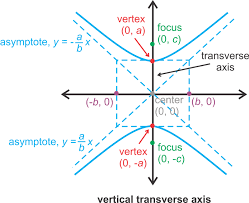Robert was, by his own admission, in trouble. His trigonometry final was eight days out. The exam covered logarithms and conic sections as well. With the ink still wet on my undergraduate math degree, I considered myself something of a F-15 pilot: I can communicate anything to anybody in any brief amount of time. I had vanity pencils made with the slogan: “We teach turnips to fly.” Never mind that Robert has failed every evaluation all year; I will get him through.

We met for three hours on a Sunday afternoon, covered all of right triangle trig, and agreed that Robert would work assigned problems to reinforce concepts.
The next day we met for three and a half hours. Robert had not done any of the homework. So we worked the problems together. Then we plunged into circles, ellipses, parabolas, and hyperbolas. Robert explained that even though he had an F for the year, the teacher had generously agreed to pass him if did well on the exam. He also mentioned that he needed the course to be graduated from high school. In a subsequent meeting, he mentioned that he had missed over half of the classes that semester. Again, I assiduously wrote out problems for Robert to solidify the concepts we had covered.
And again, he did no work between tutoring lessons. So on Tuesday, Robert and I met for four hours. We attacked logarithms. I became increasingly impassioned as I came to believe that Robert had a chance to pass. What a gift, I thought. I have found my calling. He’s getting it. Robert didn’t know the first thing about any of this material, but now he has mastered three chapters. I really can teach.
By the end of the week, Robert still wasn’t doing anything except when we were together. He hadn’t done any homework, but he knew the entire course. He scored a 97 on the final, the highest grade in the class. He was gracious and thankful. “I never could have done it without you,” he said. “My pleasure,” I replied. Inside, I was soaring. My first tutoring client and look what I had done: I had taught an entire semester in a week and a day. What an accomplishment on Robert’s part. But look at my contribution as well. Through my even-tempered disposition and complete command of the syllabus, I had got him through.
Another teacher might have lost patience with Robert’s slothfulness–he didn’t work one problem on his own. A different tutor might not have been able to predict the test questions as flawlessly. My knowledge of the coursework, my understanding of test construction, and my refusal to get annoyed with Robert’s laziness had paid off big time: Robert not only passed, he got an A; Robert was able to be graduated from high school. A hundred to one shot had come through.

But recollecting 40 years later, I am less sanguine about what I effected. Work hard and you can accomplish anything? Nah. I was the one who brought enthusiasm and expertise to the dyad. Robert was passive. Did I communicate that mathematics is exquisitely beautiful? Again, nah. Robert wasn’t going to remember anything at all let alone anything meaningful.
Instead, Robert likely internalized different insights: if your mom writes a check you can skip class; you can be inattentive in the few classes you do attend; you can procrastinate almost infinitely. You don’t have to accept responsibility; you don’t have to work hard at all. You can still get what you want. Whether you deserve it or not.
I have certainly forgiven my 22-year-old self. I don’t know that I could have imparted any more meaningful life lessons. Robert’s parents hired a math tutor, not a life coach. Nobody asked me for my discernment. “Parenting” wasn’t even a word in 1978.
But how to bring up responsible kids is certainly a topic now. As the father of four and someone who makes a living lecturing on the subject, I will make a suggestion: it has to matter more to your kid than it does to you. If your child’s grade in trigonometry is more important to you than it is to your child, something has gone wrong somewhere.

Nobody can blame Robert for accepting the easy path he was offered. As parents we have to be cognizant of the lesson behind the lesson. Few adults remember how to graph hyperbolas, but every adult has internalized whether or not she needs to work in order to achieve. The right path isn’t the right path because it’s hard. The right path is the right path because it’s right. And because the view from the top of the mountain–the summit having been achieved by diligence–is truly staggering. Let’s commit to communicating to our beloved children that which is truly important.




3 thoughts on “O Bitter Victory”
Neat story. Here’s my slightly different take on it.
If his parents had just been interested in his getting an “A” instead of a “C”,
I’d agree with you on the fact that he didn’t learn the more valuable lesson in the situation.
But he needed to pass this course to graduate.
Spending years as a non-graduate could have affected his life in many detrimental ways as
compared to perhaps learning responsibility more in his 20s than teens.
Had you not worked that hard with him, he might not have passed that test, let alone aced it.
Hopefully, Robert is out there and life taught him responsibility as he grew older…without
his having to miss out on his diploma…over a course that sounds WAY harder than most people
ever have to consider for graduating! – Milo
When I was 14, my mom hired me out as a tutor to the daughter of a friend who was a year older and was failing geometry in summer school. I did it for the money and because she was cute and older than I. Or was it the other way around? Anyway, we spent an hour twice a week through the end of the summer. She got a B on the final and a C for the course. Her math teacher didn’t think it was possible; but apparently it was. My aunt heard the story from her sister — my mom — and hired me to tutor my 3 years younger cousin in Spanish. He didn’t study and tried to joke his way through our sessions. So, I fired him as a client (not the last time I’ve fired a client). He has forgiven me. But it wasn’t easy.
There’s a fine line between helping and enabling which can be challenging when the intention is to be supportive.